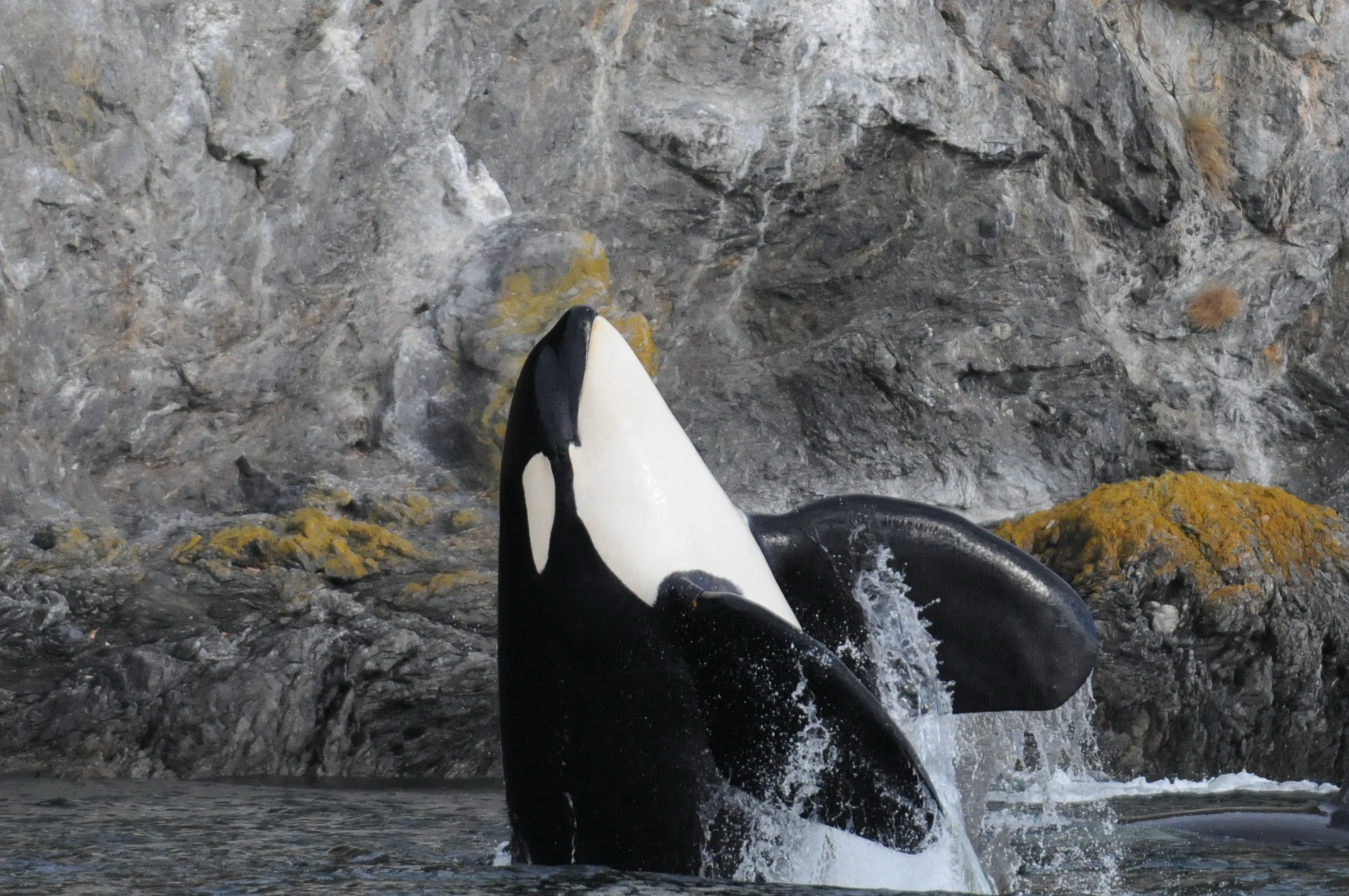News release
From:
Peer-reviewed Observational study Animals/Whales
Killer whale moms forgo future offspring for benefit of full-grown sons
It’s not unusual for parents and especially mothers to sacrifice their own future success for the sake of their offspring. Now a new study in Current Biology on February 8 shows that killer whale mothers take this to a surprising extreme. They sacrifice their own reproductive success to care for their sons, even after those sons are full-fledged adults.
“We’ve known for over a decade that adult male killer whales relied on their mothers to keep them alive, but it had never been clear whether mothers pay a cost to do so,” said Michael N. Weiss (@CetaceanMike) of the University of Exeter, UK, and the Center for Whale Research in the US.
Now it is. Weiss and his colleagues studied a group of killer whales known as the “southern resident” population in the coastal waters of Washington state and British Columbia, which has been monitored since 1976 by the Center for Whale Research. They wanted to learn whether the care adult whales, and especially males, receive from their mothers came at a measurable cost. The availability of detailed demographic data allowed them to look directly at how caring for sons and daughters impacted females’ chances of further reproduction.
“The southern resident killer whale community presents an incredible opportunity to investigate these kinds of questions,” Weiss said. “Along with their bizarre social system, where both males and females stay with their mom for life, they are also one of the best studied wild populations of mammal anywhere in the world.”
Their analysis of the existing data found a strong negative correlation between females’ number of surviving weaned sons and their annual probability of producing a viable calf. Those costs didn’t get any smaller as their sons grew older, either.
The costs couldn’t be explained by lactation or group composition effects, which they say supports the hypothesis that caring for sons into adulthood is reproductively costly. They say that the findings offer the first direct evidence for lifetime maternal investment in any animal, revealing a previously unrecognized life history strategy.
“The magnitude of the cost that females take on to care for their weaned sons was really surprising,” Weiss said. “While there’s some uncertainty, our best estimate is that each additional surviving son cuts a female’s chances of having a new calf in a given year by more than 50 percent. This is a huge cost to taking care of [adult] sons!”
The findings suggest that there are significant benefits to keeping adult sons alive and well, he added.
“Females gain evolutionary benefits when their sons are able to successfully reproduce, and our results indicate that these benefits are enough to outweigh a large direct cost,” Weiss explained.
The findings also may have important conservation implications, the researchers say. The southern residents are critically endangered, with one major concern being their low reproductive rates. The new findings reveal a major and previously unrecognized determining factor in a female’s reproductive success, which may help to inform future population viability analyses.
“One big take-away is further evidence for how special (and maybe unique) the mother-son bond in killer whales is,” Weiss said. “Maybe more importantly, our study adds to the growing body of work showing the importance of animals’ social systems in determining demographic patterns. This is of central importance both for an understanding of our world, and to effectively conserve endangered species.”
In future work, they hope to learn more about the nature of the costs to mother whales. They suspect mothers may not eat enough themselves as they continue sharing food with their full-grown sons. He noted that the southern resident killer whales are “very food-stressed.” As such, a primary conservation goal for the whales is to recover the population of Chinook salmon they rely on.



 International
International



